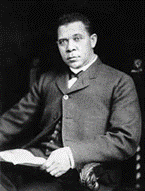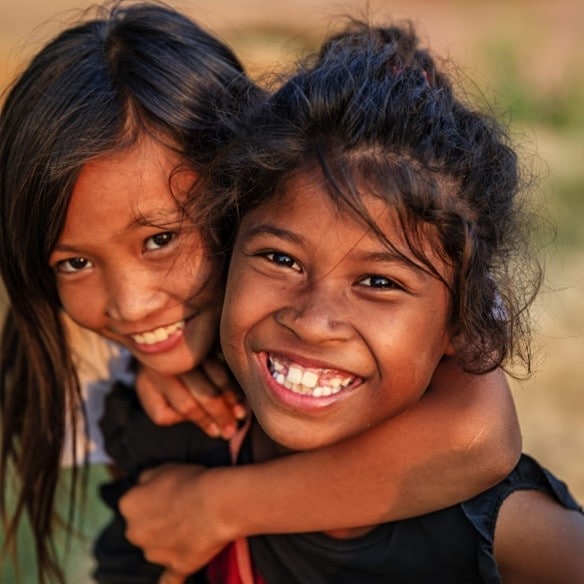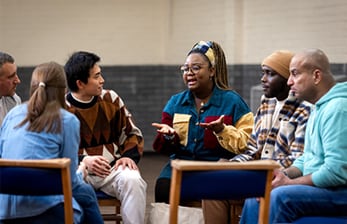Features
‹View Table of Contents
Black Health is Public Health: A Legacy of Leadership

During February every year, we honor the legacy of achievements from Black leaders in the space of public health, civil rights, social justice, health equity, and more.
This year, Black History Month comes on the heels of CDC’s yearlong commemoration of the 35th anniversary of the establishment of the agency’s Office of Minority Health – now called the Office of Health Equity (OHE). OHE exists to ensure health equity is embedded in an all-of-public health approach to overcoming persistent health disparities and health inequities across a range of population groups that disproportionately experience poor health outcomes.
Read the latest Conversations in Equity blog post to learn more about the legacy of health equity leadership working towards a vision in which all people have the opportunity to attain the highest level of health possible
Elevating Girls’ Health, Worldwide

Many girls around the world face challenges to their health and well-being. In many places, girls are disadvantaged by discrimination rooted in cultural beliefs and ideas about gender. Gender inequality puts girls’ health and well-being at risk by causing girls to face barriers to getting health information and services and placing them at increased risk for health and safety issues.
Read the featured article from CDC’s Office of Health Equity to learn about some of the challenges girls across the world face and how CDC is helping to improve the health and well-being of girls.
OHE Health Equity Partnerships Webinar Series

CDC’s Office of Health Equity (OHE) has launched a new webinar series that features presentations from OHE leaders, subject matter experts, and partners on topics that address emerging public health issues, health equity research, communication, and training, and showcase the power of partnerships in reducing health disparities and advancing health equity.
OHE and the National Center for Immunization and Respiratory Diseases held the first partner call on October 30 to discuss Respiratory Virus Season and Health Equity: Information about Respiratory Syncytial Virus (RSV), COVID-19, and Flu. Topics covered during the call included key information about these conditions, groups at highest risk for serious illness, guidance surrounding prevention and vaccination, and CDC’s efforts around health and vaccine equity. Explore the innovative strategies partners are using to ensure all communities receive current and up-to-date information about COVID-19, RSV, and flu vaccinations in the Conversations in Equity blog post.
On January 24th, the Office of Health Equity (OHE) held the second partnership webinar to discuss Promoting Health Equity in Health Communications. Topics covered during the webinar included information about health equity messaging, health equity communication principles, and the importance of accessible and inclusive communication. More resources on health equity communications and inclusive and accessible health communications materials are available in the Conversations in Equity blog post.
Subscribe to OHE’s email list for updates and information about future partner webinars. Note that you will receive an email to confirm your desire to be added to the subscription list and must complete this step to begin receiving email updates.
Project Firstline: Expanding Reach and Addressing Health Equity

CDC’s Project Firstline is a collaborative of more than 80 diverse healthcare, academic, and public health partners. Project Firstline provides frontline healthcare workers with the infection control knowledge, tools, and resources they need to be prepared to respond to ongoing and emerging infectious disease threats in health care.
Project Firstline works to translate CDC infection control recommendations, guidance, and policy into actionable content that explains the rationale behind the science, focusing on teaching the “why” behind infection control as much as the “what” and the “how.” The project also strives to ensure infection control training and resources are readily available to healthcare workers often overlooked (nurses, allied health professionals, environmental service workers, and emergency medical technicians).
Read about the early impacts of this program on CDC’s Health Equity in Action.
The Mental Health of People with Disabilities

Adults with disabilities report experiencing frequent mental distress almost 5 times as often as adults without disabilities. Although “people with disabilities” sometimes refers to a single population, this is a diverse group of people with a wide range of needs. Two people with the same type of disability can be affected in very different ways. Some disabilities may be hidden or not easy to see.
Learn how the CDC is working to improve the mental health of people with disabilities.
Bleeding Disorders in Women

Up to 1.6 million (or about 1 in every 100) women and girls in the United States have a bleeding disorder, and many are unaware of their condition. The bleeding disorder community includes people living with von Willebrand disease (VWD), hemophilia, platelet disorders, and other rare bleeding disorders (called rare factor deficiencies). While men and women can both be affected by bleeding disorders, these disorders can pose unique problems for women because of their impact on reproductive health, including heavy menstrual bleeding.
Learn the signs and symptoms and read stories of women and girls living with bleeding disorders.
Environmental Justice Index at the State and Local Level

The Environmental Justice Index (EJI) helps public health officials identify and prioritize communities most at risk for the health impacts of environmental burden. The EJI is the first national, place-based tool designed to measure the cumulative impacts of environmental burdens through the lens of human health and health equity.
Find out how the Environmental Justice Index (EJI) can provide a valuable national perspective to local or regional environmental justice challenges.